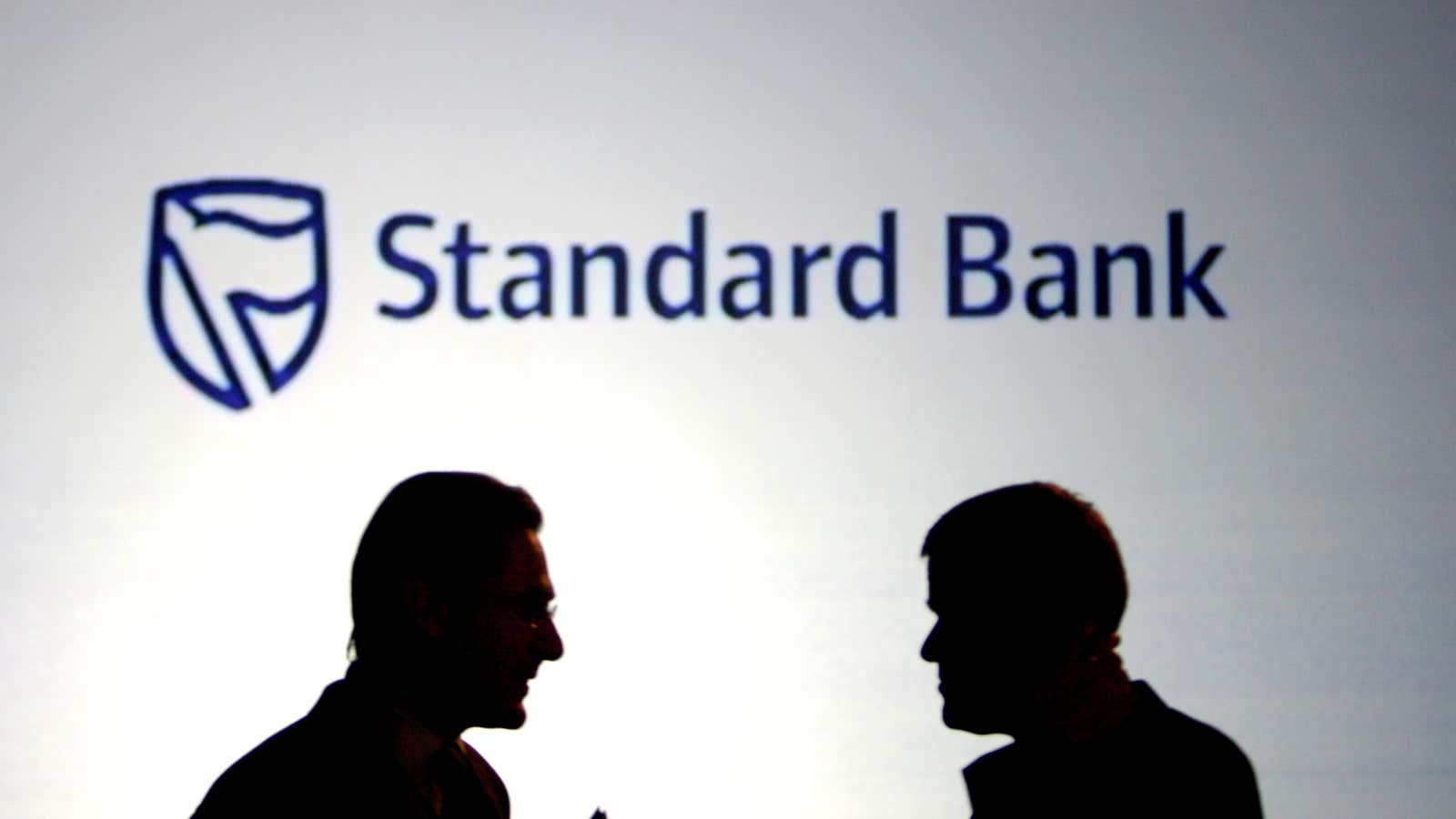Africa’s largest bank wants to bring the continent’s small and informal businesses into its fold.
In a deal announced on Tuesday (Aug. 27), Standard Bank invested $4 million into Nomanini, a fintech firm that connects banks and distributors to informal merchants. As part of the deal, Standard will offer a mobile application that provides credit to customers in 14 countries including South Africa, Uganda, Kenya, and Nigeria. By tapping into Nomanini’s data and client lists, Standard hopes to offer loans to first time users, expand its customer base, and boost its branchless banking services.
The deal is a win for Nomanini too, says founder and chief executive Vahid Monadjem. The partnership will allow the Cape Town-based company to widen its services and scale into new markets by piggy-backing on the bank’s wide reach.
Standard Bank Group is the largest African banking group by assets, with a market cap of approximately $23 billion as of June 2019, and has an on-the-ground presence in 20 countries. Nomanini has, in turn, served several thousand merchants by working with a dozen distributors across six countries including Namibia, Kenya, Mozambique, and Ghana.
“In addition to credit and loans, we’ll be providing savings and insurance,” Monadjem says. “As a merchant-first solution, we will essentially provide whichever tools merchants need to grow their businesses.”
African banks, large and small, are trying to figure out ways help drive up financial inclusion and offer more credit services from micro-credit to loans for small to medium-sized enterprises. Banks, seeing fast-growing availability of financial services via mobile phones across the continent, are looking to small and nimble fintech startups as partners to help them reach a customer base they had traditionally ignored.
With 456 unique mobile subscribers and 400 million registered mobile money accounts across Sub Saharan Africa, according to the GSMA, financial institutions are also coming to terms with the transformative power of mobile money and its potential as a source of revenue and deposits.
Given that, banks and fintech startups have both been trying to permeate the mobile financial services sector and pull some of these customers their way. This strategy is also animated by the rising adoption in Africa of smartphones, the growth of account-to-account interoperability, besides the ancillary industries like e-commerce facilitated by mobile money.
Banking institutions are especially looking to the unbanked given how their high-cost models, transaction fees, and complicated paper processes keep off large low-income segments of the population. As such, Africa’s retail-banking penetration stands at half the global average for emerging markets at 38% of the gross domestic product, according to management consulting firm McKinsey.
But as the banking population grows in Africa, financial establishments aren’t waiting for customers but are partnering with fintech companies and telecom operators to target them directly.
Monadjem says one of the challenges they foresee is that they will be operating across fragmented and heterogeneous markets where needs and demands will differ. But if all goes well, their short term target is to reach one hundred thousand retail traders. “Each trader reaches hundreds of consumers each month, translating into a positive ripple effect to tens of millions of consumers.”
Sign up to the Quartz Africa Weekly Brief here for news and analysis on African business, tech and innovation in your inbox
